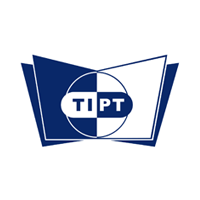
Nutraceuticals are a multibillion dollar industry, and the sector is only expected to grow in the coming years to meet the demands of consumers. Nutraceuticals are natural health products that are derived from food.
These products have been claimed to harbor extraordinary health benefits of all kinds, such as potentially improving the immune system and delaying the aging process. However, the industry faces some tough challenges to meet regulatory standards affecting the manufacturing and sale of nutraceuticals, and must take steps to ensure proper sanitation and product safety, as well as adhering to strict advertising and labeling standards.
Here is a quick overview of the nutraceuticals industry – and the regulatory processes that affect it – for students interested in beginning a career in regulatory affairs.
Nutraceuticals are Often Organized Into Four Distinct Categories
How nutraceuticals are categorized may depend primarily on how they are sourced from foods, the nature of their chemical composition, and the product’s pharmaceutical conditions. The most commonly agreed upon categories for nutraceuticals are functional foods, farmaceuticals, dietary supplements, and medical foods.

Functional foods are food products that have been enhanced and strengthened during processing, sometimes with additives like Vitamin D or C. They provide the body with necessary nutrients, and may also help to prevent some diseases. Dietary supplements comprise nutrients taken from certain foods which are then focused into different kinds of consumable medications, such as protein powder and fish oil pills.
Farmaceuticals are developed through the use of biotechnology. Pharmaceutical companies alter the DNA of cattle and other animals as well as different types of crops in order to produce compounds like proteins with health benefits. Medical foods are meant to be administered under medical supervision for the purposes of dietary management, such as formulas which are fed intravenously to patients in hospitals.
Nutraceuticals Must Adhere to Strict Manufacturing Regulations
Concerning the manufacturing of nutraceutical products, professionals with a regulatory affairs diploma need to ensure that their organizations meet strict guidelines. In addition to complying with Canadian and international regulations governing pharmaceutical products, nutraceutical manufacturers also have adhere to food safety regulations. For example, the Food Safety Modernization Act (FSMA) in the United States can significantly affect the manufacturing of nutraceuticals. The goal of the FSMA is to reduce the chances of product contamination and foodborne illnesses, setting regulations concerning sanitation, allergen control, and process control.
In accordance with the act, nutraceutical product manufacturers in the United States should ensure that they have a food safety plan, and safeguard their products from all types of biological and chemical contaminants. The food safety plan must also take into account the possibility of the cross-contamination of products, and work out strategies to prevent a product’s contact with allergens.
Accurate Labelling is Important in Nutraceuticals
Graduates of a regulatory affairs program understand the value of proper labelling practice, which can be extremely important when it comes to nutraceuticals. Nutraceuticals in Canada are usually marketed as either food or drugs, and claim to help improve a consumer’s health or prevent certain conditions and diseases.
Nutraceutical product manufacturers have both a social responsibility to only make claims about their products that are accurate, and a legal responsibility to make sure that those facts are verifiable. Nutraceutical labels should also indicate the proper dosage, energy value in calories in the case of nutritional supplements, and whether or not the products were manufactured in a facility that contains allergens, like nuts or seafood.

Are you interested in a pharmacy career?
Contact the Toronto Institute of Pharmaceutical Technology to find out more about our programs.
